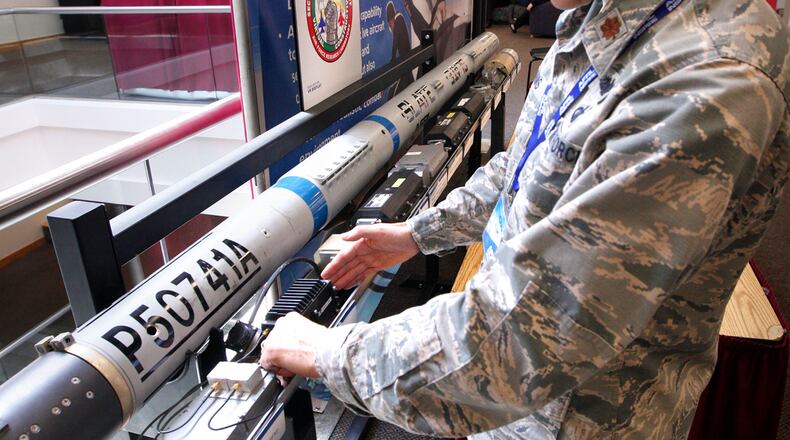“A big part of it is collaboration and education and connecting people together who don’t normally get connected,” Dennis Andersh, president and chief executive of WSARC, said in an interview.
WSARC will be the lead agency assisting the Air Force in that process, Andersh said.
The work “will be countrywide,” he said. “We’ll start in smaller regions to begin with. But eventually it will be across the country.”
The idea is to accelerate technology transfer from universities to industry and the Air Force.
MORE: Dayton shooting victims' estates may get $250K each
“They’re looking for ingenuity, new technologies, but they’re also looking for the workforce and the workforce employees,” Andersh said. “This is a way of trying to attract new talent.”
The five-year project will focus on “enhancing academic engagement nationwide in support of the Air Force Small Business program, national defense strategy and the Air Force’s 2030 strategy,” a WSARC announcement said.
MORE: After a strong 2018, orders for heavy trucks are down
Focusing initially on the Air Force’s Small Business Innovative Research and Small Business Technology Transition Research programs, APEX is meant to “improve the connections between the Air Force, academia, and industry across the United States,” the research corporation said.
“Importantly, the APEX project focuses specifically on growing the Air Force’s technological defense capabilities in partnership with academia,” said Bill Harrison the Air Force Research Laboratory small business director. AFRL is based at Wright-Patterson Air Force Base.
The corporation and other partners around the country will receive the money. The money will seed teams to work together on various projects.
MORE: GE Aviation-Vandalia wins new Navy contract
The work won’t be entirely new, Andersh said. “We’re building off what we’ve been doing in Ohio for the past five years.”
The Ohio Federal Research Network has been funded by state government in that time. The focus of that effort was very similar — to better connect Ohio academic institutions, public and private, to industry and federal centers across Ohio, including AFRL, NASA and others.
The goal was the same: Find technology solutions quickly, bring new ideas to federal offices and produce the “workforce for the future.”
MORE: Public forums will discuss criteria for charitable fund to Dayton shooting victims
“APEX is building upon what was done across Ohio,” Andersh said.
WSARC has 70 employees. The corporation hired three new employees immediately because of the APEX award. There may two or three additional hires, Andersh said.
The award may represent a step forward for WSARC, which the Ohio auditor said this summer had illegally paid more than $1.3 million to a former consultant.
WSARC processed and approved 18 invoices for consulting services provided by Ron Wine Consulting Group, LLC, from October 2013 to January 2015, according to the auditor’s report released in late July.
WSARC made the payments despite not having a written consulting agreement to define the scope of the services the corporation was paying for. The invoices submitted by Ron Wine Consulting also “lacked supporting documentation detailing the work performed,” the auditor’s report said.
“I continue to have concerns about the system of checks and balances in place at Wright State University and its components,” state auditor Keith Faber said in a prepared statement at the time.
The Dayton Daily News originally revealed Wine’s questionable dealings with Wright State in 2015. The paper’s reporting brought to the auditors’ and the public’s attention the fact Wine was invoicing Wright State for millions of dollars despite a lack of written contracts and loose oversight of Wine’s firm by WSU officials.
About the Author

